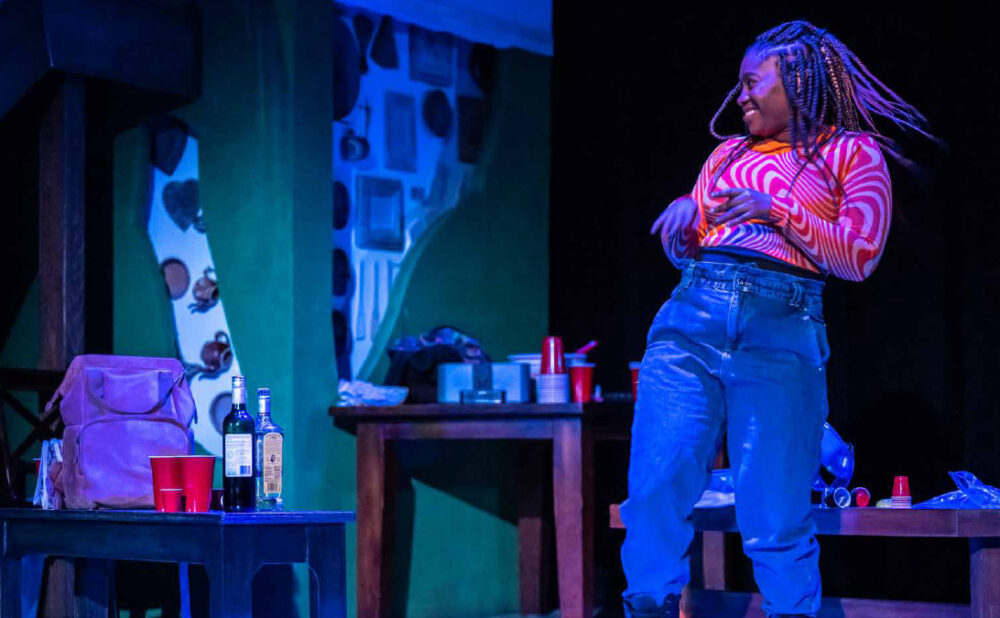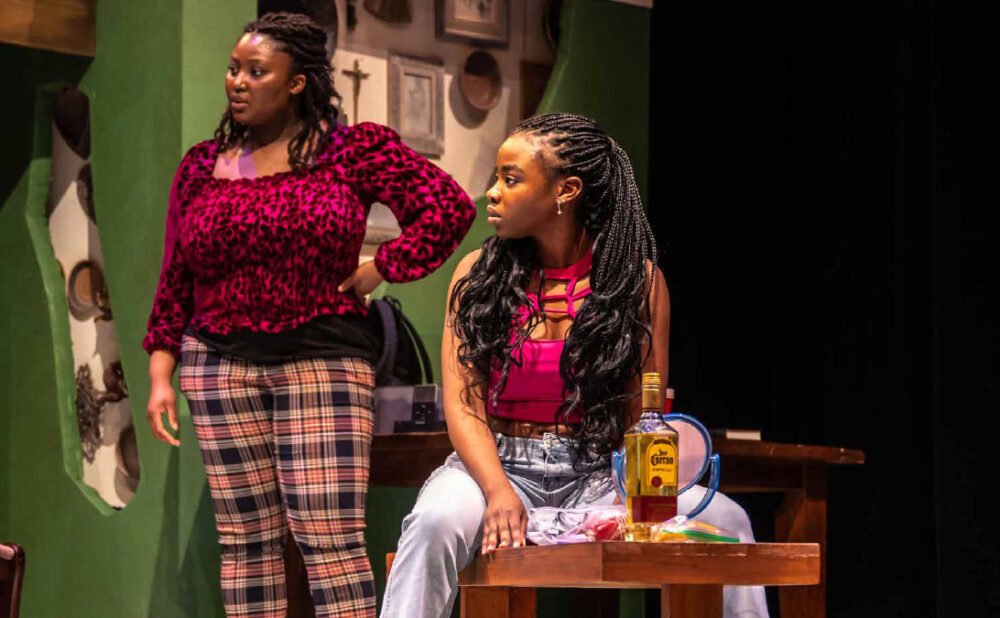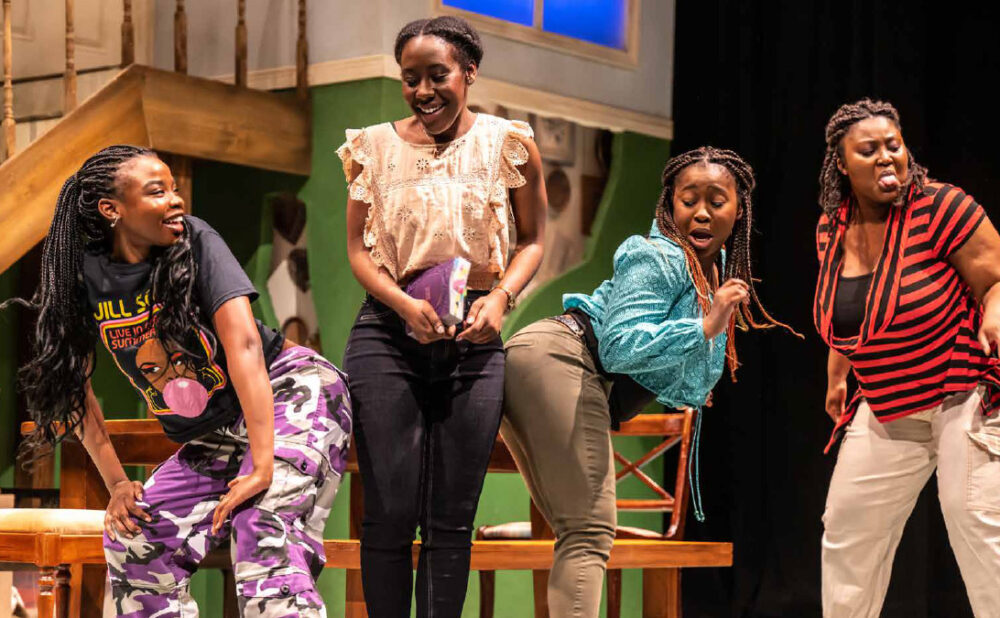Factory Theatre’s ‘Vierge’ makes Bible study interesting
Rachel Mutombo’s new play expertly swerves from comic highs to tragic lows
What: Vierge
Where: Factory Theatre, 125 Bathurst St.
When: Now, until April 30
Highlight: A flashily staged party scene
Rating: NNNN (out of 5)
Why you should go: It’s both an effective social comedy and a vicious takedown of the church.
FACTORY THEATRE HAS LONG BEEN Toronto’s premiere playwriting theatre. For over 50 years, it’s been dutifully carrying out its mission of commissioning and developing new Canadian plays.
So, it’s appropriate that Vierge, Factory’s first full-scale production since last October’s The Waltz, is such a feat of playwriting. In her first full-length play, Rachel Mutombo takes a common theatrical structure — a group of people sitting in a room and talking — and breathes new life into it by realizing the highs and lows of her characters’ emotional journeys to an impressively full extent.
Shauna Thompson started off The Howland Company’s recent Prodigal by playing a preacher giving a sermon about forgiveness. As Divine Kabamba, the 16-year-old protagonist of Vierge, she again starts a show with a religious monologue — this time, a prayer that the first meeting of the church basement Bible-study group she’s started will go well.
But a volley of high-pitched giggles soon interrupts her pious murmuring. From the door to the basement, the boisterous Congolese sisters Grace (Yvonne Addai) and Sarah (JD Leslie) Katende enter the scene. While Divine started the group because she genuinely wanted to dig into the Book of Ruth with other girls her age, the Katende sisters are there mostly for laughs. Same goes for Bien-Aimé Ilunga (Kudakwashe Rutendo), the witty daughter of the church’s former pastor who rounds out the four-girl study group.
Over a few weekly meetings, Bien-Aimé and the Katende sisters induct Divine into the complex social world of the church. They introduce her to drinking and nudge her towards kissing a boy. Conversely, Divine’s wide-eyed innocence helps the other three see the church from a fresh point of view. Her utter commitment to her faith is, paradoxically, exactly what’s needed to expose its insidiousness.
Mutombo expertly swerves from comic highs to tragic lows. With the help of Thompson’s earnest performance, she exaggerates Divine’s uptightness to a hilarious degree, at times almost making her seem like a character out of a medieval morality play. But she gives the show’s more emotional content — which deals with the spectre of sexual assault that hangs over the church — the time it needs to breathe. Long, movingly performed monologues and carefully placed silences ensure that no characters’ inner struggles are brushed over.
Director Natasha Mumba takes a realistic approach to staging the piece. Most of the action occurs in the church basement’s shabby main room, which set designer Rachel Forbes outfits with plenty of cardboard boxes and disordered bins. The flashiest moment is the show’s climactic party scene, which Mumba and lighting designer Jareth Li pull off with exciting resourcefulness — though it’s still just the four girls on stage, we see the flashing lights of the party bumping along through the windows and doors to the building’s adjoining rooms.
Vierge is both an effective social comedy and a vicious takedown of the church. Somehow, Mutombo and Mumba have made Bible study profoundly interesting.








